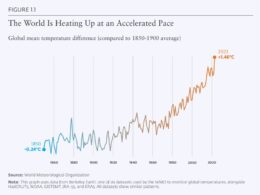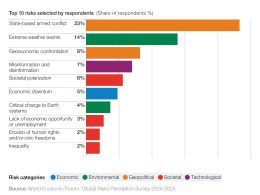The Oil & Gas Decarbonisation Charter (OGDC) has released its Baseline Report establishing a foundation to prioritise and track emissions reductions by its 54 signatory oil and gas companies, which together account for nearly 45% of global oil production. The Charter sets ambitious goals: achieving net-zero operational emissions by 2050, near-zero upstream methane emissions, and the elimination of routine flaring by 2030. Signatories are also committed to measuring and publicly reporting their progress toward OGDC’s objectives.
The publication of this Baseline Report marks a significant milestone for OGDC, which was launched at COP28 a year ago. In the past year, OGDC has built a governance framework and conducted a comprehensive survey to evaluate the emissions reduction targets and strategies of its members, creating a benchmark for future progress. OGDC has also introduced a Collaborate & Share programme to spread solutions, foster peer collaboration, and encourage best practices in emissions reduction. Reflecting the initiative’s momentum, three new members—Oil India Limited, PetroChina, and Vår Energi—have recently joined.
“We are proud of the 54 companies that have already signed up to the Charter and are encouraged by the extent of their engagement in this first major piece of work that helps to establish a base on which to build future success,” OGDC’s three CEO Champions and founding members – Abu Dhabi National Oil Company (ADNOC) CEO Sultan Al Jaber, Aramco CEO Amin Nasser and TotalEnergies Chairman and CEO Patrick Pouyanné, said in a joint statement.
The statement further said, “Each company is at a different phase of the decarbonisation journey. For some, the Charter reflects existing commitments and aligns with pledges already made via other initiatives. For others, it marks their first steps toward climate action.”
“The diverse nature of our signatories is an opportunity as well as a challenge. Each company brings different experiences, capabilities, stakeholders and national circumstances. Signatories will have the opportunity to learn from the best practices and insights of peers from a wide range of backgrounds and from across the globe,” the CEOs said.
The Charter’s Baselining Survey revealed that the majority of signatories are aligned with OGDC’s ambitions of achieving net-zero operations by 2050, cutting methane emissions to near-zero, and eliminating flaring by 2030. The survey also highlighted areas where gaps exist, guiding OGDC’s priorities for support and knowledge transfer. Although most signatories already report on their greenhouse gas emissions, the need for standardised reporting frameworks was identified to enhance transparency and accuracy across the group.
Additionally, the survey showed that most signatories are actively investing in future energy systems, including renewable energy, energy storage, low-carbon fuels, hydrogen, methane reduction technologies, carbon capture utilisation and storage (CCUS), and carbon removal technologies, with plans to scale up these investments.
Bjorn Otto Sverdrup, the head of the OGDC Secretariat said, “A survey of oil and gas industry climate performance has never been attempted on this scale. Participants ranged from companies that pioneered decarbonisation decades ago to those still in the early phases – all with different capabilities and reporting methods. The lessons learned will be used to improve reporting visibility and data quality and to create more targeted programmes.”
Looking ahead, OGDC plans to support its signatories over the coming year by providing the resources and guidance needed to cut greenhouse gas emissions, reduce methane leaks, and eliminate flaring. OGDC will also assist in developing net-zero roadmaps and emission reporting frameworks to track progress and demonstrate the positive climate impact of collective action on a global scale.
















